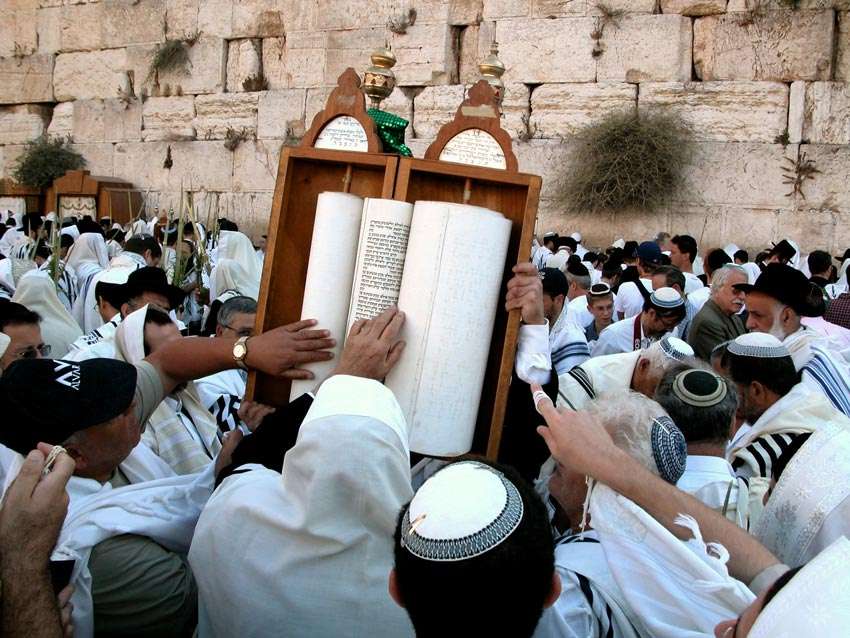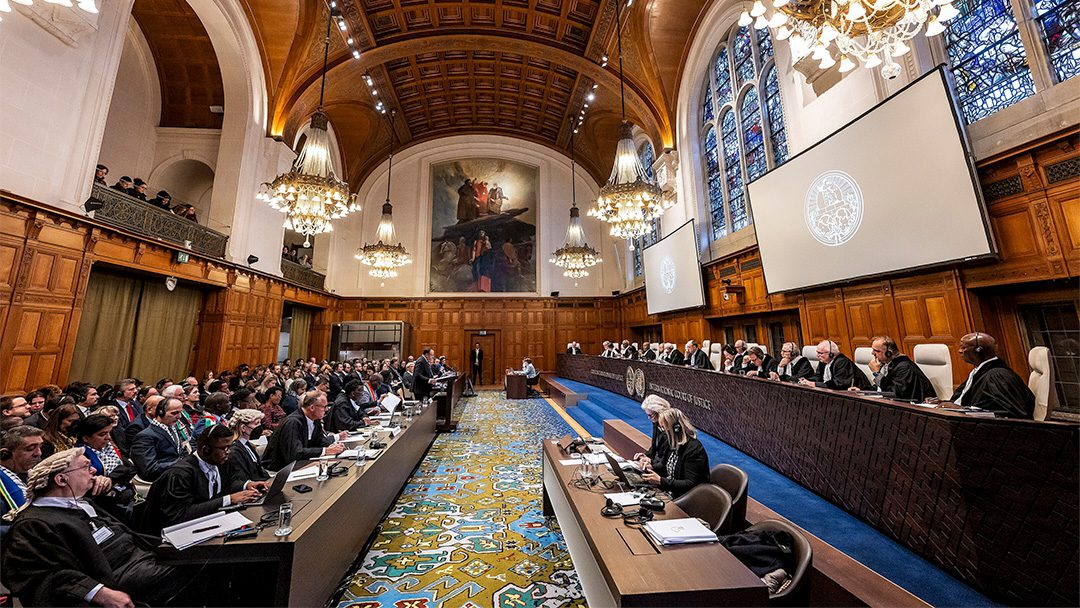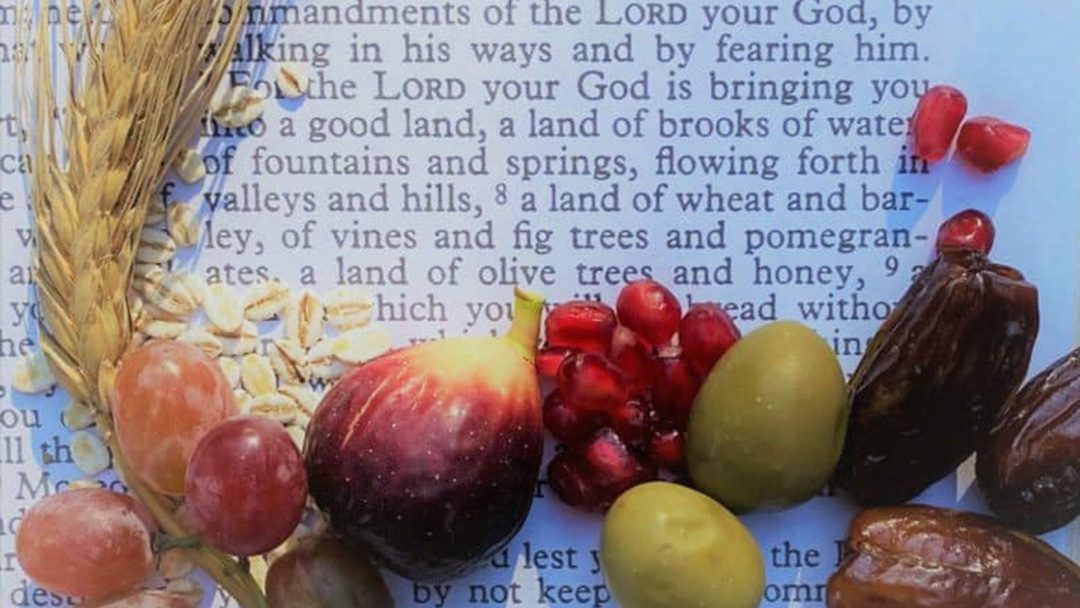This is the season of joyful feasts, a time of year where the faithfulness and triumph of the Lord is measured against worldly threats. Jesus used the Feast of Tabernacles to make a profound statement.
On the last day of the Feast, He declared rivers of living water would flow from the innermost being of those who believe in Him (John chapter 7)
The Feast of Tabernacles, this year in October, is also known as Sukkot (sukkah singular). Most people eat and sleep in the Sukkah. From the fragile sukkah the stars are visible and the occupants are exposed, at least partially, to wind and rain. The conditions relate to their history and the forty days of wandering in the wilderness.
In the synagogues the celebrants sing hymns while circling in a procession. The circle is about unity. They dance, hand on the shoulder in front, and shuffle forward while singing hymns. In this formation, they are one. There is no leader, no class. No direction either! They are together linked by choice and wherever they are going, they are going together.
Christians
Those who ignore the Biblical feasts miss the deep lessons. Christians have the same human emotions as Jews. The Apostle Paul acknowledged that fact:
“We are afflicted in every way, but not crushed; perplexed, but not driven to despair; persecuted, but not forsaken, struck down, but not destroyed.” – 2 Corinthians 4:9
The Jewish people knew all about suffering and persecution. So did the early Christians.
The celebration of Shemini Atzeret and Simchat Torah follows Sukkot with great joy! Leslie Koppelman Ross writes:
“The distinct feature of the day (Shemini Atzeret) is recitation of the prayer for rain so that the earth will be able to produce in the coming year.” – Celebrate! The Complete Jewish Handbook of Holidays, Leslie Koppelman Ross, Rowman and Littlefield Publishers Inc.
Sukkot is observed over seven days and on the eighth day Shemini Atzeret and Simchat Torah. There is significance in the numbering. In Hebrew seven means perfect, complete, satisfied. Shemini Atzeret is on the eighth day and is called ‘the eighth day convocation.’
Numbers?
So, what about 7 and 8? It took 7 years for the First temple to be built. Solomon chose to dedicate the Temple during Sukkot.
“All the people of Isra’el assembled before the king at the festival in the seventh month.” – 2 Chronicles 5:3
Do you know what happened on the eighth day?
“then, the house, the house of ADONAI, was filled with a cloud; so that because of the cloud, the cohanim (priests) could not stand up to perform their service; for the glory of ADONAI filled the house of God. – 2 Chronicles 5:13,14
‘Filled with a cloud!” The Holy Spirit filled the temple on the eighth day of the Feast. Consider the consecration of Aaron and his sons as priests. They were set apart for seven days (Leviticus chapter 8 verse 35). On the eighth day they were anointed.
David was the eighth son of Jesse. He was chosen to launch a new life for Israel. (1 Samuel 16:10-11) A title for Jesus is Son of David!
Those who ignore the Biblical feasts miss the deep lessons.
In Hebrew the number eight comes from a root meaning ‘to make fat’,’ ‘to abound in strength.’ Seven indicates we are complete and satisfied in the Lord and then eight is the anointing of great strength!
Holiness
Simchat Torah (October 12-13) is the celebration dedicated to completing the yearly cycle of public Torah reading, and starting the cycle again. The name means ‘joy of the Torah.’ The celebrants were instructed to be qadas meaning ‘holy’, that is, ‘set apart’ removed from the common to the sacred.
Leviticus chapters 17 to 26 are designated as ‘The Holiness Code’ which harks back to “You shall be holy, for I, the Lord your God, am holy.” (Leviticus 19:2) Holiness requires the people separate themselves from the world, and prioritize their fellowship with God. The key Hebrew word for fellowship is ‘badal’, and means to remove from something.
The seventh day was holy, meaning set apart. Jesus called His followers to be set apart.
“Do not love the world or the things in the world. If anyone loves the world, the love of the Father is not in him. For all that is in the world – the lust of the flesh, the lust of the eyes, and the pride of life – is not of the Father but is of the world. And the world is passing away, and the lust of it; but he who does the will of God abides forever.” – 1 John 2: 15-17
Two Messiahs
The Musaf, the additional service on Shemini Atzeret, begins with a special prayer for rain. In Hosea chapter 6, verse 3 and Joel chapter 2 verse 23 we are informed that the coming of Messiah will be like the rain. Just as there are spring (former) rains and fall-winter (latter) rains in Israel, the Bible speaks of two comings of Messiah.
In His first coming, He fulfilled the role of Messiah Ben Yosef, the Suffering Messiah-Prophet-Priest described by Isaiah.
“He was despised and rejected of men, a man of sorrows, and acquainted with grief…” – Isaiah chapter 53:3
During His second coming, the Messiah will fulfill the role of Messiah Ben David, the Conquering Messiah-Rabbi-King.
“Rejoice greatly, O daughter of Zion! Shout aloud, O daughter of Jerusalem! Behold, your king is coming to you; righteous and having salvation is he, humble and mounted on a donkey, on a colt, the foal of a donkey.” – Zechariah 9,:9
One day a famous Rabbi was discussing the coming of Messiah. He discussed the two messiahs and how Jesus could fit both. “When Messiah comes,” he said to me, “May I be the first to ask, Is this your first or second visit?”
I referred him to John chapter 1.












0 Comments